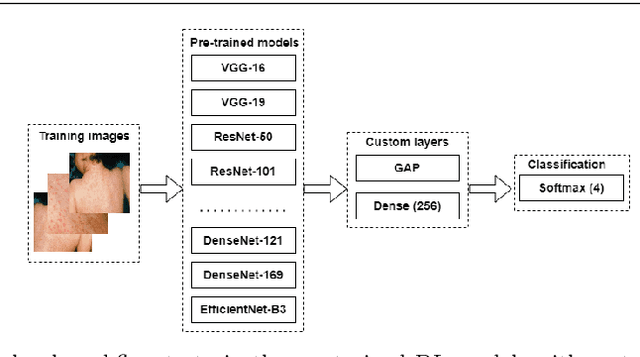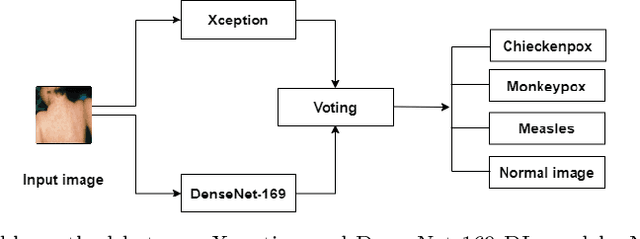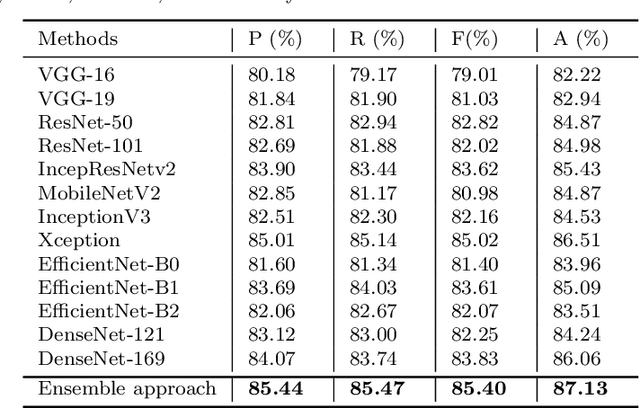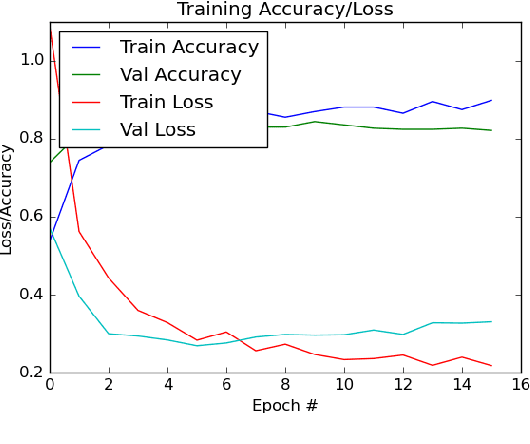Monkeypox virus detection using pre-trained deep learning-based approaches
Paper and Code
Sep 17, 2022



Monkeypox virus is emerging slowly with the decline of COVID-19 virus infections around the world. People are afraid of it, thinking that it would appear as a pandemic like COVID-19. As such, it is crucial to detect them earlier before widespread community transmission. AI-based detection could help identify them at the early stage. In this paper, we aim to compare 13 different pre-trained deep learning (DL) models for the Monkeypox virus detection. For this, we initially fine-tune them with the addition of universal custom layers for all of them and analyse the results using four well-established measures: Precision, Recall, F1-score, and Accuracy. After the identification of the best-performing DL models, we ensemble them to improve the overall performance using a majority voting over the probabilistic outputs obtained from them. We perform our experiments on a publicly available dataset, which results in average Precision, Recall, F1-score, and Accuracy of 85.44\%, 85.47\%, 85.40\%, and 87.13\%, respectively with the help of our proposed ensemble approach. These encouraging results, which outperform the state-of-the-art methods, suggest that the proposed approach is applicable to health practitioners for mass screening.
 Add to Chrome
Add to Chrome Add to Firefox
Add to Firefox Add to Edge
Add to Edge